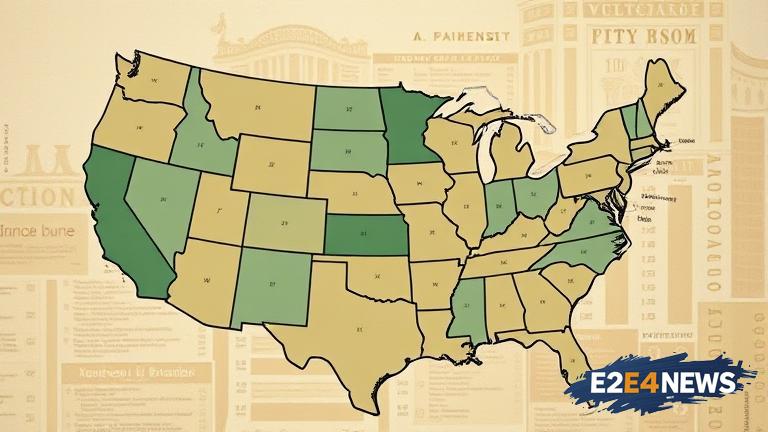A team of researchers at Brown University has conducted an in-depth analysis of political donations, uncovering hidden patterns and trends that have significant implications for the world of politics. The study, which examined data from various sources, including the Federal Election Commission, found that many donors tend to contribute to multiple candidates and parties, often with conflicting ideologies. This phenomenon, known as ‘hedging,’ allows donors to maintain relationships with politicians from both sides of the aisle, potentially influencing policy decisions. The researchers also discovered that certain industries, such as finance and healthcare, tend to dominate political donations, with many companies and organizations contributing large sums to various candidates. Furthermore, the study revealed that donations from individual donors often follow a predictable pattern, with many contributors giving to candidates from their home state or district. The findings of this study have significant implications for our understanding of the role of money in politics and the ways in which donors seek to influence policy decisions. The research also highlights the need for greater transparency and accountability in the world of political donations, as the current system can often be opaque and difficult to navigate. In addition, the study’s authors suggest that the discovery of these hidden patterns could lead to the development of new strategies for campaign finance reform, potentially reducing the influence of big money in politics. The study’s methodology involved a comprehensive analysis of donation data, using advanced statistical techniques to identify trends and patterns. The researchers also conducted interviews with politicians, donors, and other stakeholders to gain a deeper understanding of the motivations and strategies behind political donations. The study’s findings have been met with interest and concern from various quarters, with some arguing that the revelations highlight the need for urgent reform, while others see the study as an important contribution to our understanding of the complex world of politics. The research has also sparked debate about the role of money in politics, with some arguing that donations are a necessary part of the democratic process, while others see them as a corrupting influence. As the study’s authors note, the relationship between donors and politicians is complex and multifaceted, and further research is needed to fully understand the implications of these findings. The study’s conclusions are also relevant to the current debate about campaign finance reform, with many arguing that the system is in need of overhaul. The researchers’ discovery of hidden patterns in political donations has significant implications for our understanding of the ways in which money influences politics, and the study’s findings are likely to be of interest to scholars, policymakers, and the general public alike. The study’s authors hope that their research will contribute to a greater understanding of the complex relationships between donors, politicians, and the policy process, and that it will inform efforts to reform the campaign finance system. In the wake of the study’s release, there have been calls for greater transparency and accountability in the world of political donations, with some arguing that the current system is ripe for abuse. The study’s findings have also sparked interest in the potential for new technologies and strategies to increase transparency and reduce the influence of big money in politics. As the debate about campaign finance reform continues, the study’s authors believe that their research will play an important role in shaping the conversation and informing efforts to create a more equitable and transparent system. The study’s methodology and findings have been praised by scholars and experts in the field, who see the research as a significant contribution to our understanding of the complex world of politics. The study’s authors are currently working on follow-up research, exploring the implications of their findings and examining the potential for reform. The study’s release has also sparked interest in the media, with many outlets covering the story and exploring the implications of the research. The study’s findings have significant implications for the future of campaign finance reform, and the researchers’ discovery of hidden patterns in political donations is likely to be an important part of the conversation. The study’s authors believe that their research has the potential to inform and shape efforts to reform the campaign finance system, and they hope that their findings will contribute to a greater understanding of the complex relationships between donors, politicians, and the policy process.
